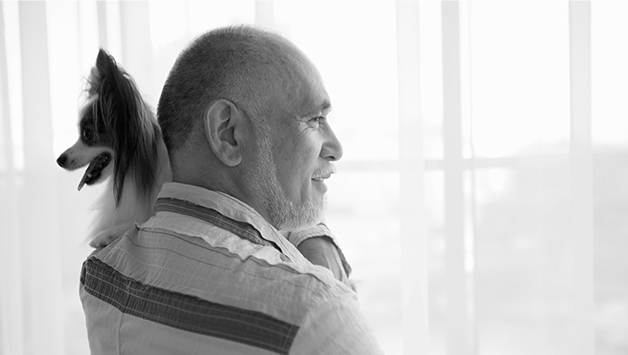
Losing a loved one leaves a huge hole in your life. This is especially true if you’re a senior who has lost a life partner. You’re not only grieving your spouse, but you’re learning how to carve out a new life on your own as a widow or widower. You may be living alone for the first time in decades and feel too sad to be around others. If you also have age-related mobility challenges, you can slip into social isolation very easily.
A lack of interest in social activities is normal following loss, but ongoing social isolation can be dangerous. It can lead to deep depression, damage your physical health, and cause suicidal thoughts or actions if you don’t get the help you need. But all hope is not lost. You can learn the signs of loneliness and what you can do to combat senior isolation.
Some degree of physical decline is inevitable as you age. But some physical challenges, such as vision and hearing loss and difficulty walking and driving, can cause socialization barriers. If you combine them with an emotional stressor, such as the loss of a spouse, the odds of experiencing social isolation increase. These factors can turn into a vicious cycle, since social isolation can lead to depression, which further exacerbates health problems that can limit mobility.
You may be wondering, "Is senior isolation the same as social isolation?" Older adult loneliness has been associated with poor diet, substance abuse, cognitive decline, and a variety of illnesses — from heart disease to Alzheimer’s disease — making lonely seniors more likely to need assistance with daily living tasks and require long-term senior care. Sadly, prolonged senior isolation can even mean living fewer years.
Following a loss, you can ward off social isolation and care for yourself by finding new purposes in your life, both big and small.
Catching up on your loved ones’ lives not only makes you feel less alone, but their supportive hugs can lessen depression symptoms.
If family lives too far away for frequent hugs, you may need to find other ways to reduce loneliness. Try calling, texting, and video chatting with them. If possible, schedule the virtual meet-ups to give you something to look forward to during the week.
If you’re able, get out of the house regularly to be around people. Socializing can happen in a variety of ways — from volunteering to joining groups centered around a common interest, such as a book club or senior exercise class.
If you aren’t facing any significant physical challenges, you may want to consider pet adoption. Pet snuggles and unconditional love ward off depression as much as people hugs.
If you’re unable to drive anymore, you may want to consider relocating to a senior living facility, so you can enjoy daily contact with caregivers and participate in activities with other seniors.
It’s important to remember there’s no “right” way to grieve, nor do the feelings surrounding grief have an expiration date. Remind yourself that sadness and feelings of loneliness are normal responses to the passing of a life partner. And no matter how proactive you are in trying to combat senior isolation, you may still feel deeply bereaved and struggle to move through the grieving process.
If you’re already experiencing social isolation after losing a partner, you can try the steps above, but you may also need more help dealing with your grief. You can feel less lonely and deal with your grief by talking to someone, whether it’s a family member, grief counselor or support group. Grief support is available in more ways than ever these days. You can log on to an online grief forum, call a hotline — or “warm” line — or even text, day or night. The most important thing is to reach out and connect, no matter your preferred method.
Photo credit: iStock
Search for grief support resources, such as in-person groups, online forums, and phone hotlines, available in your area.
Wellabe offers life and supplemental health insurance plans to help you prepare for good days and bad. We’ll always be here to empower you to be well — well prepared, well protected, and well loved.